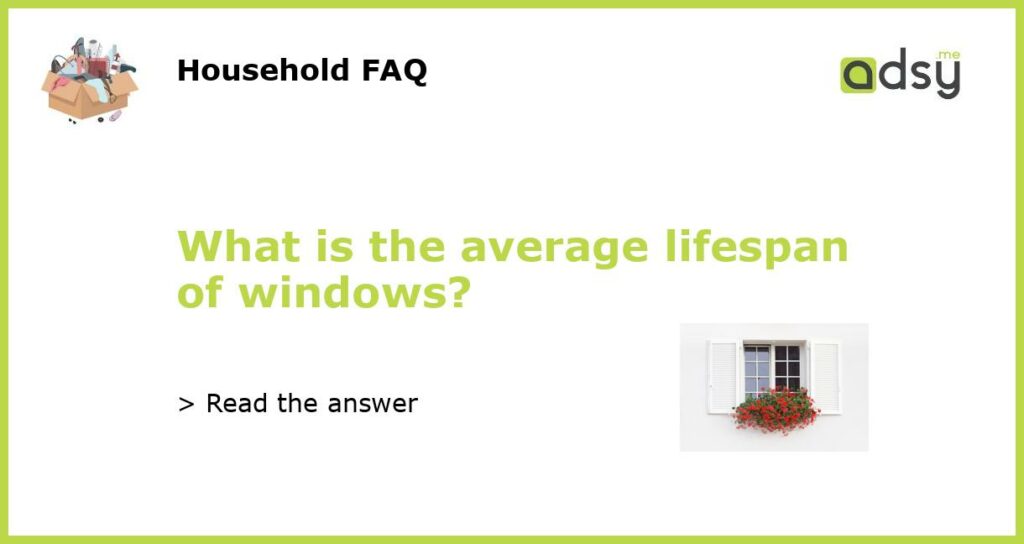The average lifespan of windows
Windows are an essential component of any home, providing both aesthetic appeal and functionality. However, like any other household item, windows will deteriorate over time and eventually need to be replaced. Understanding the average lifespan of windows can help homeowners anticipate when they may need to invest in new ones. In this article, we will explore various factors that determine the lifespan of windows and provide an estimate of their average lifespan.
Factors influencing the lifespan of windows
Several factors can impact the lifespan of windows. These include:
- Material: The material used to construct the window frames has a significant impact on their durability. Common window frame materials include wood, aluminum, vinyl, and fiberglass. Each material has its own lifespan.
- Maintenance: Regular maintenance can extend the lifespan of windows. Proper cleaning, lubrication, and inspections can help identify and address any issues before they worsen.
- Climate: The climate in which the windows are installed plays a role in their lifespan. Extreme weather conditions, such as heavy storms, intense heat, or freezing temperatures, can accelerate the wear and tear on windows.
- Quality of installation: The skill and expertise of the installers can affect how well the windows are fitted and their overall lifespan. Improper installation can lead to premature failure.
- Exposure to sunlight: Prolonged exposure to sunlight can cause fading and deterioration of the window frames and sealants.
Average lifespan of common window materials
The average lifespan of windows varies depending on the material used. Here are the approximate lifespans of common window materials:
- Wood: Wood windows have a lifespan of around 20 to 30 years. Regular maintenance, such as painting or staining, can help extend their lifespan.
- Aluminum: Aluminum windows typically last between 15 to 20 years. They are lightweight and durable but can be prone to corrosion in areas with high humidity or salt exposure.
- Vinyl: Vinyl windows have a lifespan of approximately 20 to 40 years. They are low-maintenance and resistant to rotting, but extreme temperature fluctuations can cause warping.
- Fiberglass: Fiberglass windows are known for their longevity and can last up to 50 years or more. They are highly durable and resistant to various weather conditions.
Signs it’s time to replace your windows
While the lifespan of windows can vary, there are several signs that indicate it may be time to replace them. These include:
- Visible damage: Cracked or broken window panes, warped frames, or difficulty in opening and closing the windows are clear signs that replacement is needed.
- Drafts and air leaks: If you feel drafts or notice air leaks around the windows, it indicates that the sealants have deteriorated, compromising energy efficiency.
- Increased energy bills: Old and inefficient windows can lead to higher energy bills as they allow heat to escape during winter and cool air to enter during summer.
- Noise and soundproofing issues: If outside noise is easily heard inside the house or you experience poor soundproofing, it may be a result of old windows that are no longer providing adequate insulation.
- Condensation and moisture buildup: Excessive condensation or moisture buildup between the window panes indicates seal failure and requires replacement.
Know when to replace your windows
The average lifespan of windows depends on various factors such as the material, maintenance, climate, quality of installation, and exposure to sunlight. Understanding these factors can help homeowners anticipate when their windows may need to be replaced. By regularly evaluating the condition of windows and looking out for signs of damage, drafts, increased energy bills, noise issues, and condensation, homeowners can make informed decisions about window replacement. It is recommended to consult with window professionals to assess the condition of windows and determine the best course of action for replacements.






